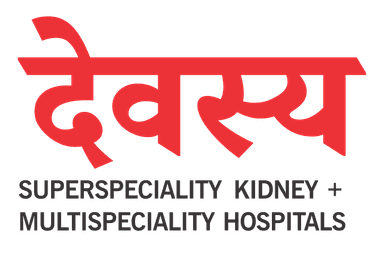Colon Cancer Treatments & Surgery
How Devasya Hospital Helps to Cure Colon cancer?
Devasya Hospital can help individuals seeking treatment for colon cancer, including procedures such as colectomy. They are known for providing effective treatments for cancer and have a reputation for their expertise in this area. With a team of experienced individuals Devasya Hospital provides effective treatments for colon cancer. Through a multidisciplinary approach, these medical institutions provide a range of cutting-edge therapies that cater to each patient's unique needs.
Upon diagnosis, a team of skilled oncologists, surgeons, radiologists, and other specialists collaborate to formulate personalized treatment plans. Surgical interventions, such as colectomy, are performed using state-of-the-art techniques, including minimally invasive procedures to ensure precision and faster recovery.
The hospital also offers advanced radiation therapy, chemotherapy, and targeted therapies, utilizing the latest advancements in medical research and technology. Through the commitment to innovation, expertise, and compassionate care, Devasya Hospital strives to provide patients battling colon cancer with the most effective treatments available.
FAQs
Colon cancer, also known as colorectal cancer, develops due to a combination of genetic, environmental, and lifestyle factors. While the exact cause of colon cancer isn't always clear, several risk factors have been identified that can increase the likelihood of its development.
Diagnosing colon cancer involves a series of tests and procedures designed to detect the presence of cancerous cells or tumors in the colon or rectum. Early detection is crucial for effective treatment. Here are some of the key tests and procedures commonly used for diagnosing colon cancer:
- Fecal Occult Blood Test (FOBT)
- Colonoscopy
- Flexible Sigmoidoscopy
- Virtual Colonoscopy (CT Colonography)
- Double-Contrast Barium Enema
- Biopsy
- Blood Tests
- Genetic Testing
Early-stage colon cancer may not show any symptoms, but as the cancer progresses, the following symptoms may appear like changes in Bowel Habits, blood in Stool, abdominal discomfort, cramps, pain, or bloating in the abdomen, unexplained weight Loss, and even iron deficiency is observed in some cases.
Managing the side effects of colon cancer treatment is an important aspect of your overall care. The side effects can vary depending on the type of treatment you're undergoing, such as surgery, chemotherapy, radiation therapy, or targeted therapy.
Colon cancer can lead to various complications, especially if it's not diagnosed and treated early. The complications can arise due to the growth of the cancerous cells and the potential spread of the disease.
You can lower your risk of colon cancer by:
- Maintaining a Healthy Diet: Eat a balanced diet rich in fruits, vegetables, and whole grains.
- Regular Exercise: Stay physically active.
- Limiting Alcohol: If you drink, do so in moderation.
- Avoiding Smoking: If you smoke, quit.
- Screening: Regular screenings, especially after the age of 50, can help detect colon cancer in its early stages.



